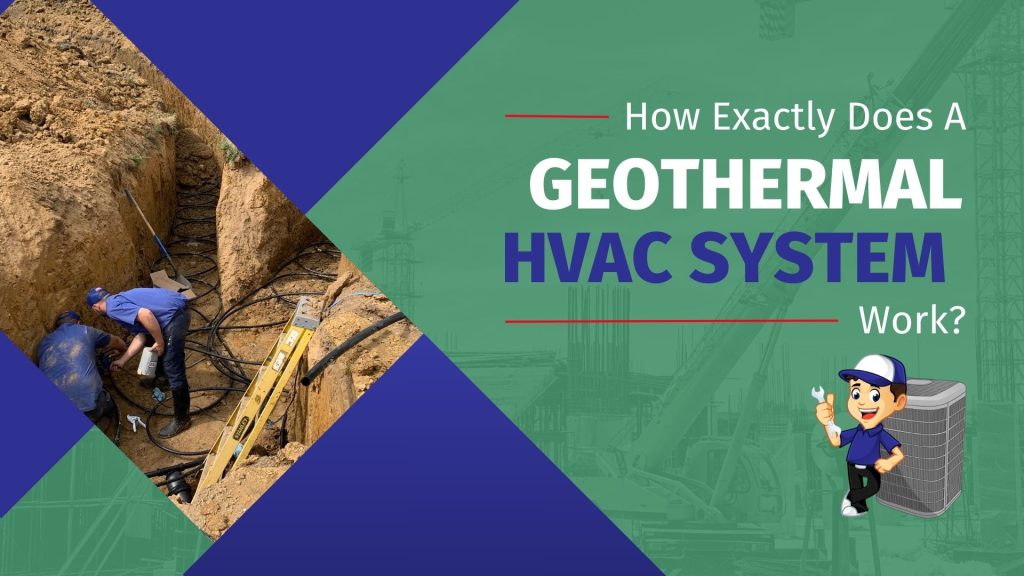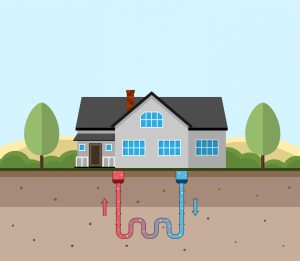If you’ve been thinking about an HVAC upgrade, geothermal is a great consideration to make. Although before you begin to get your heart set on one, it’s a good idea to have an assessment completed at your house to see whether or not your home and yard are eligible for a geothermal unit.
You can keep reading to learn more about how a geothermal HVAC system is different than other heating and cooling solutions and why it might be right for your family. Then give us a call when you’re ready to schedule your geothermal service in Milford, OH.
How Does a Geothermal System Work?

This type of system is also called a ground source heat pump because a network of coils get installed under the ground in your yard. These coils then connect to a central unit in your home to transfer heat inside during the winter and move it out of your home during the summer.
Pro: Long Lifespan
The underground portion of a geothermal system can easily last for 50 years or longer. You will have to replace the attached heat pump by the 20 to 25-year mark, which is still a much longer lifespan compared to other types of HVAC systems.
Pro: Low Maintenance Needs
You still need to schedule annual maintenance for your geothermal system just to be safe. Since a large portion of the unit is well-protected underground, there isn’t much actual maintenance to complete. We can check to ensure everything is working and help maintain the heat pump itself, but the coils won’t need attention.
Pro: Cost Savings
Geothermal systems are extremely energy efficient to operate. Since the units transfer heat from one place to another, they don’t consume a lot of energy for heating and cooling your home. You can save a lot of money on your monthly energy costs with this type of system.
Plus, with less maintenance needed, you’re also saving over having to make frequent repairs like you would have to with a different central unit. These savings can be difficult to quantify since you don’t know exactly how much you’d have to spend otherwise, but we can help you with general estimations so you can assess the potential for saving money.
Con: Upfront Installation Costs
Although you can save from month to month, the initial installation is significantly more expensive compared to more traditional central HVAC systems. While other systems cost anywhere from $2,500 to $7,500 for installation, a geothermal unit is $30,000 or more. That’s a big difference.
There are some tax rebates you can take advantage of, so be sure to talk to us about your options before writing off this idea completely. Yes, the upfront cost is a lot. It may be five to six times as much as another HVAC system…but it also stands to last five times as long.
Con: Availability and Installation
Geothermal units are fantastic for any region of the country. The issue comes with individual yards and homes. If your house has space constraints, it may not be eligible for a geothermal unit. We also have to assess the layout of plumbing lines under your yard before we begin digging and wind up causing damage.
If your home is eligible, you want to keep in mind that the installation itself can damage your landscaping and require some effort to fix once the project is complete. You may have to completely relay grass in your yard or fix flowerbeds.
Shafer Heating & Cooling, LLC: You are just one call away from the comfort and savings you deserve! Schedule an appointment today for your geothermal assessment.

